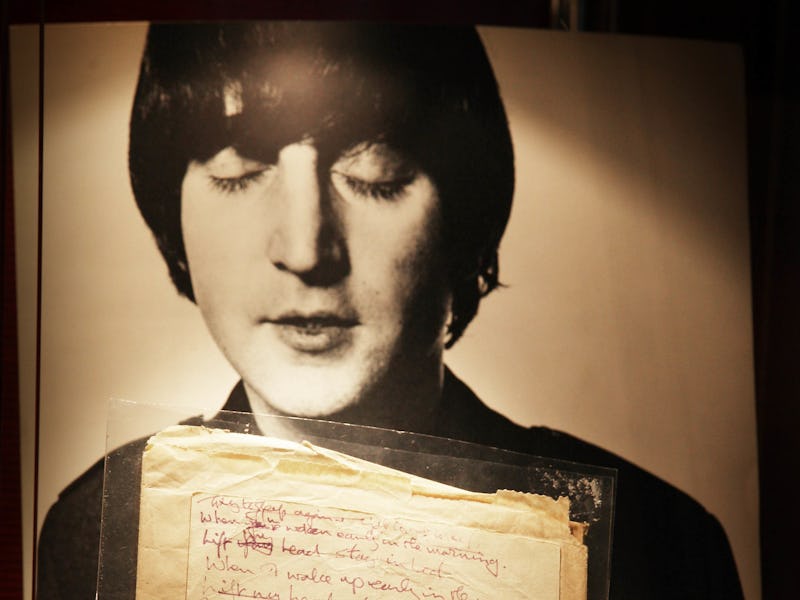Beatles Memorabilia Collector Gets John Lennon's DNA From His Hair
Thousands of dollars will get you some of John Lennon's hair -- and a bit of his DNA.

In 1967 a German barber did something that was at once very enterprising and super creepy: he kept a snipped lock of John Lennon’s hair. That bit of hair was sold this weekend to Paul Fraser, a United Kingdom-based memorabilia collector who threw down $35,000 for privilege. Fraser’s purchase is more than just a Beatles collectible — it’s bit of the man himself, existing in the form of DNA. Which, if you’re an obsessive enough fan, could be used to get really weird.
The cells that make up the shaft of a hair contain a specific type of nucleic acid known as mitochondrial DNA. Those cells don’t contain the regular DNA that holds all of the information needed to make a human (that’s contained in the hair’s root). This DNA is normally passed from a mother to a fetus. So, Lennon’s hair isn’t enough to clone him — but in the hands of a superfan, it could be helpful for finding out whether they share the same maternal line.
This isn’t the first time someone has bought a chunk of Lennon’s locks — in 2007, someone bought some of his hair for $48,000. Collecting celebrity hair has a historical precedent, but in the modern celebrity era, people are willing to put out serious amounts of cash. In 2007, Che Guevara’s hair was sold for $100,000, and in 2002, an Elvis fan bought a bit of his famous mane for $115,000. The Guinness World Records citation for largest collection of historical hair goes to John Reznikoff, who has the hair of over 100 celebrities.
The range of things you can do with celebrity hair is surprisingly broad. Besides analyzing it for maternal lineage and determining whether your favorite celebrity died from lead poisoning, you can make a synthetic diamond from hair’s carbon or, allegedly, a customized perfume. The company Celebrity Gene claims it can take the mitochondrial DNA of a celebrity and turn it into a “product or jewelry piece.”
A photograph of the interior of 'The John Lennon Collection,' a compilation released in 1982.
In the United States there are no federal laws that specifically address cloning, and across the country, DNA theft is not considered a crime. This is a boon to the growing number of people insistent on deciphering their family tree and a pain for the people whose coffee cups are stolen for saliva testing.
The free market of owning someone else’s DNA also offers little legal support for celebrities or members of the celebrities’ kin to keep people from buying hair and teeth. In 2005, Neil Armstrong was unsuccessful in blocking the unsettling sale of his own hair, kept by his former barber. Yoko Ono and her legal team are currently in a battle with Canadian dentist Michael Zuk, who bought Lennon’s tooth and plans on cloning the music icon.